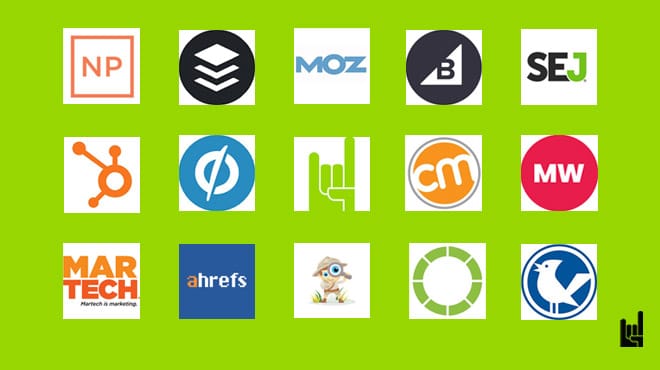In 2024, AI venture funding reached a new record, surpassing the US$100 billion mark for the first time.
According to the 2025 World Economic Forum’s Future of Jobs Report, by 2030, technological advancements, including AI and automation, are expected to displace 92 million jobs while creating 170 million new ones, resulting in a net gain of 78 million jobs.

Some of these changes already come from the big tech. But the rest is yet to come. Where will it come from? Well, from the word of AI startups, of course!
Among the many emerging ventures, a select few stand out as pioneers, ready to revolutionize the way we live, work, and interact with technology.
With no further ado, these are the top AI startups to look out for in 2025 and beyond.
1. ElevenLabs [AI voice generator]

Headquartered in: NY, USA
Company size: 11-50
Funding round: Series B
Total funding raised: 208M
Last valuation: $3.3B
ElevenLabs is at the forefront of voice synthesis, crafting eerily lifelike digital voices that are shaking up the audio content scene. Their platform is a game-changer for creators in need of authentic-sounding voices, from audiobooks to virtual assistants. With cutting-edge AI infrastructure, ElevenLabs is blurring the lines between human and machine, offering voices that capture the subtlest of human expressions. It’s not just about sounding real; it’s about delivering personalized voice experiences that resonate across various digital mediums.
The buzz around ElevenLabs is well-deserved. They’re not just creating voices; they’re pioneering a new era of digital communication. The entertainment and educational spheres are already tapping into this goldmine, leveraging ElevenLabs’ tech to captivate audiences with unparalleled auditory experiences. This startup is leading the voice synthesis revolution, fueled by innovation and a keen understanding of the digital landscape’s evolving demands.
2. Krutrim [AI computing]

Headquartered in: Bangalore, India
Company size: 101-250
Funding round: Series A
Total funding raised: 74M
Last valuation: $1B
Thanks to Krutrim’s platform and its machine learning algorithm, businesses can produce, refine, and personalize content at scale, addressing the growing demand for dynamic and tailored digital content. Krutrim’s technology is particularly useful for marketers, content creators, and eCommerce platforms.
Krutrim’s success can be attributed to its focus on improving content efficiency and effectiveness, enabling users to generate high-quality, SEO-friendly content quickly. By automating and optimizing the content creation process, Krutrim helps its clients save time and resources, leading to improved content strategies and better business outcomes.
3. Perplexity AI [AI-powered search engine]

Year founded: 2022
Headquartered in: San Francisco, USA
Company size: 201–500
Funding round: Series C
Total funding raised: $1.41B
Last valuation: $14B
Perplexity AI is redefining web search by delivering direct, cited answers in real time, moving beyond traditional lists of links. Its clean interface and robust backend handle complex queries with speed and precision, allowing users to ask context-aware questions and access sources with ease. This approach has gained traction among researchers, students, developers, and others seeking efficient information retrieval.
With backing from investors like IVP, NEA, and NVIDIA, and integrations into platforms such as Discord and Brave, Perplexity is quickly becoming a go-to for real-time, trust-driven information. As search evolves towards direct answers over link lists, Perplexity is at the forefront of this transformation.
4. OpenAI [AGI, ChatGPT bot]
Year founded: 2015
Headquartered in: San Francisco, USA
Company size: 4,500
Funding round: Later Stage VC
Total funding raised: $57.9B
Last valuation: $300B
Possibly the most popular AI startup right now, OpenAI has made significant contributions to the field of artificial intelligence. It’s mostly known for developing highly advanced AI models like GPT (Generative Pretrained Transformer) and DALL-E, which have pushed the boundaries of what’s possible in natural language understanding and generation, as well as in AI-generated imagery.
OpenAI has seen widespread success and recognition, not just within the academic and research communities but also among businesses and the general public. Their models have been integrated into a variety of applications, from automated content creation tools to sophisticated conversational agents, showcasing the versatility and power of their AI technologies.
💡 Read: 20 ChatGPT Prompts for Your Digital Marketing
5. Typeface [personalized AI content for work]

Headquartered in: San Francisco, USA
Company size: 186
Funding round: Series B
Total funding raised: 165M
Last valuation: $1B
Typeface’s platform helps users generate, edit, and personalize written content across various formats and channels. Its AI technology is particularly beneficial for content marketing, social media management, and customer communication, where consistent and high-quality written content is key.
Typeface has managed to simplify and enhance the content creation process, allowing users to produce more content in less time while ensuring it aligns with their brand’s identity. Its growth reflects the increasing demand for AI tools that can support creative processes and improve productivity in content-related tasks.
6. Mistral AI [open-weight models]

Headquartered in: Paris, France
Company size: 11-50
Funding round: Series B
Total funding raised: $1.19B
Last valuation: $6.2B
Mistral AI optimizes the supply chain and logistics operations. Their platform uses advanced algorithms to predict demand, optimize inventory levels, and enhance delivery routes, helping businesses reduce costs and improve efficiency.
Mistral AI’s technology is particularly relevant in today’s fast-paced market, where supply chain agility and reliability are key competitive advantages. The startup’s solutions have been well-received by the logistics, retail, and manufacturing sectors, demonstrating the broad applicability and value of their technology in improving supply chain dynamics.
7.Cognition Labs [health data platform]

Year founded: 2023
Headquartered in: San Francisco, USA
Company size: 11–50
Funding round: Series B
Total funding raised: $196M
Last valuation: $4B
Cognition Labs is the team behind Devin, the first AI software engineer that can autonomously plan, build, test, and deploy entire applications. It moves beyond assistive tools to act as a full development agent, capable of completing GitHub issues end-to-end with minimal input. This shift from “copilot” to “contractor” is what sets it apart.
Backed by Founders Fund and other top-tier investors, Cognition is pushing AI into the infrastructure of software creation itself. With Devin showing early signs of real-world viability, this startup is worth watching not just for what it builds, but for how it’s redefining technical labor in the age of AI.
8. Inflection AI [machine learning]

Headquartered in: Palo Alto, USA
Company size: 11-50
Funding round: Series B
Total funding raised: $1.25B
Last valuation: $4B
Inflection AI aims to bridge the gap between complex AI capabilities and everyday user needs, making advanced AI more usable and beneficial in daily tasks. The company focuses on developing AI models that understand and respond to natural human communication.
The startup has gained recognition for its innovative approach to AI, particularly in how it applies to enhancing user experiences across various applications, from customer service bots to personal assistants. Their work in natural language processing and machine learning has the potential to significantly impact how people interact with technology, making it more responsive and user-friendly.
9. Runway [generative AI for video]

Year founded: 2018
Headquartered in: New York City, USA
Company size: 101–250
Funding round: Series D
Total funding raised: $308M
Last valuation: $1.5B
Runway builds AI tools that turn text into video. Their products, Gen-1 and Gen-2, let users generate, edit, and animate footage without touching a camera. Designed for creators, marketers, and production teams, Runway brings high-end visual effects to the desktop, making video workflows faster and more accessible.
Its tech has powered content for major brands, music videos, and even Oscar-winning films. With video poised to become the next frontier in generative AI, Runway is positioned as a key enabler, serving the demand for speed, scale, and style in digital content production.
10. Snorkel AI [data-centric AI platform]

Headquartered in: Redwood City, USA
Company size: 101-250
Funding round: Venture (series unknown)
Total funding raised: $135.3M
Last valuation: $1B
Snorkel AI is a startup focused on revolutionizing the way machine learning models are trained. Their platform, Snorkel Flow, enables users to build and manage AI models more efficiently by using a technique called programmatic labeling.
Snorkel AI’s innovative methodology addresses one of the key bottlenecks in AI development: the need for vast amounts of labeled data. By automating the labeling process, Snorkel AI has empowered organizations to accelerate their AI initiatives and achieve better model performance with less data.
11. Synesthesia [AI video avatars]

Headquartered in: London, UK
Company size: 201–500
Funding round: Series D
Total funding raised: $330M
Last valuation: $2.1B
Synthesia helps businesses create professional video content without cameras, studios, or voice actors. Users write a script, choose an avatar, and generate video in minutes. It’s ideal for training, onboarding, product demos, and internal communication. The result is scalable video production for globally distributed teams.
With clients spanning from Fortune 500s to startups, Synthesia has become the preferred tool for organizations needing multilingual, brand-consistent content at speed. It replaces expensive, slow workflows with fast, high-quality AI video that works across time zones and formats.
12. Pika Labs [AI video generation]

Headquartered in: Palo Alto, USA
Company size: 2–10
Funding round: Series B
Total funding raised: $135M
Last valuation: $700M
Pika Labs is an AI-powered text-to-video platform that enables users to generate videos from text prompts, images, or other video clips. Founded by former Stanford AI Ph.D. students Demi Guo and Chenlin Meng, the company aims to simplify video creation and editing through AI technology. Their platform offers features like creating sound effects, adding lip sync to characters, aspect ratio changes, trimming, and the ability to modify elements within the video, such as clothing.
With a user-friendly interface and a focus on accessibility, Pika Labs has attracted a diverse user base, including marketers, content creators, and indie teams seeking professional-grade visuals without the need for extensive technical expertise. The platform’s rapid growth and innovative approach have positioned it as a notable player in the AI video generation space.
13. Etched [AI writing tool]

Headquartered in: Cupertino, USA
Company size: 35
Funding round: Series A
Total funding raised: $125M
Last valuation: $34M
Etched.ai is developing Sohu, a specialized AI chip designed to run transformer models, the backbone of generative AI applications like ChatGPT and Google Gemini. By focusing on transformer inference, Etched aims to offer a more energy-efficient and cost-effective alternative to general-purpose AI chips. The company has partnered with Taiwan Semiconductor Manufacturing Co. (TSMC) for chip fabrication.
In June 2024, Etched raised $120 million in a Series A funding round led by investors including Peter Thiel and Replit CEO Amjad Masad. The company was founded by Gavin Uberti and Chris Zhu, both Harvard dropouts, and has grown to a team of 35 employees. Etched’s focus on transformer models represents a calculated risk, but one that could pay off significantly if the demand for specialized AI hardware continues to grow.
14. Cerebras Systems [AI training]

Headquartered in: San Francisco, USA
Company size: 251-500
Funding round: Series F
Total funding raised: $720M
Last valuation: $4B
Cerebras Systems is a pioneering AI hardware startup known for developing the world’s largest and most powerful AI processor, the Wafer Scale Engine (WSE). Cerebras’ technology is particularly beneficial for research institutions, pharmaceutical companies, and any organization working on complex AI problems that require substantial computational resources.
The success of Cerebras Systems lies in its innovative hardware solutions that overcome the limitations of traditional chip design, offering a significant leap forward in AI computing capabilities. Their contributions to the field have not only accelerated AI research and development but have also opened up new possibilities for solving some of the world’s most challenging problems through AI.
15. VAST Data [data platform]

Year founded: 2016
Headquartered in: New York, US
Company size: 501-1000
Funding round: Series E
Total funding raised: $381M
Last valuation: $9.1B
VAST Data is a disruptive startup in the data storage sector, offering a universal storage platform designed to simplify data infrastructure and eliminate the traditional trade-offs between performance, scalability, and cost. Their technology combines the speed of all-flash storage with the scalability and cost-effectiveness of hard drives, making it suitable for a wide range of data-intensive applications, from AI and machine learning to big data analytics.
By offering a solution that scales effortlessly and delivers consistent high performance, VAST Data has attracted a diverse clientele, including leading companies in industries such as life sciences, finance, and entertainment. The startup’s innovative platform is setting new standards for data storage, making it a key player in the ongoing evolution of the data center landscape.
Honorable Mentions
1. GoCharlie [marketing productivity]

Year founded: 2022
Headquartered in: San Francisco, USA
Company size: 2-10
Funding round: Pre-seed
Total funding raised: $3.25M
Last valuation: –
GoCharile’s AI is looking to boost your team’s productivity by automating repetitive tasks like research and content creation so you can focus on more strategic, creative work. A leading Generative AI company, GoCharlie specializes in developing cognitive agents and models optimized for businesses. Its multi-tool platform features anything from an Audio to Text generator to web scraping.
Although not as big as some other startups on this list, GoCharlie is definitely one of those emerging AI startups you want to keep an eye on. Currently, the generative AI startup has 6 investors, including SRI International and Davidovs Venture Collective.
2. Murf AI [voice generator]

Year founded: 2020
Headquartered in: Utah, USA
Company size: 51-200 Employees
Funding round: Series A
Total funding raised: $11.5M
Last valuation: –
Murf offers various features such as text-to-speech in over 20 languages, voice cloning, and AI Dubbing. The platform uses artificial intelligence to improve modification capabilities and allows users to create natural-sounding narrations for a variety of projects.
Furthermore, Murf seamlessly integrates with various platforms such as Canva, Google Slides, Adobe Audition, and Adobe Captivate, extending its usability across different workflows.
3. Iris (Qureos) [AI recruitment platform]

Year founded: 2021
Headquartered in:Dubai, UAE
Company size: 50-100
Funding round: Pre-seed
Total funding raised: $3.07M
Last valuation: –
Iris by Qureos an AI recruitment intelligence platform that automates sourcing, shortlisting, and candidate outreach in just 24 seconds. It helps recruiters and hiring managers discover profiles and match them with relevant candidates.
Iris generates customized job descriptions to attract the right talent. It also takes care of the outreach by sending hyper-personalized messages to shortlisted candidates.
4. Convin [Omnichannel contact platform]

Year founded: 2021
Headquartered in: Bengaluru, India
Company size:100-150
Funding round: Series A
Total funding raised: $8.94M
Last valuation: 6.5M
Convin is an intelligence platform that employs Generative AI to empower customer-facing teams. Designed for the dynamic environments of sales, support, and collection call centers, Convin offers AI-backed tools to track, transcribe, and analyze agent-customer interactions across calls, emails, and chats.
With Convin, global call centers handling high volumes of calls benefit from robust automation and proactive methods, ensuring conversation quality and accelerating business growth. The platform supports a wide range of use cases, including Sales, Support, Collections, Compliance, and Retention, reflecting the diverse needs of its users.
AI Startups FAQ
How many AI startups are there?
As of the latest available data, there are approximately 67,200 artificial intelligence companies worldwide. The US is home to the largest number of AI companies, with approximately 25% of the global total. What’s more, China has the highest rate of AI deployment, followed by India.
What challenges do AI startups face?
AI startups often grapple with challenges such as securing sufficient funding, navigating regulatory and ethical considerations, and ensuring data privacy and security. AI startups, being startups, need to take care of their growth metrics in order to grow. This is why smaller startups often outsource their marketing and growth to a startup marketing agency. Furthermore, there are AI marketing agencies that leverage AI and are often in a position to understand the intricacies of an AI startup or AI company.
How do AI startups impact traditional industries?
AI startups are revolutionizing traditional industries by introducing efficiencies, automating processes, and providing data-driven insights. This leads to cost savings, enhanced productivity, and the creation of new business models and opportunities.
What is the future outlook for AI startups?
The future outlook for AI startups is promising, with increasing adoption across sectors and continuous advancements in AI technologies. The key to success will be in addressing ethical considerations and ensuring the beneficial impact of AI on society.

Theodore has 20 years of experience running successful and profitable software products. In his free time, he coaches and consults startups. His career includes managerial posts for companies in the UK and abroad, and he has significant skills in intrapreneurship and entrepreneurship.



